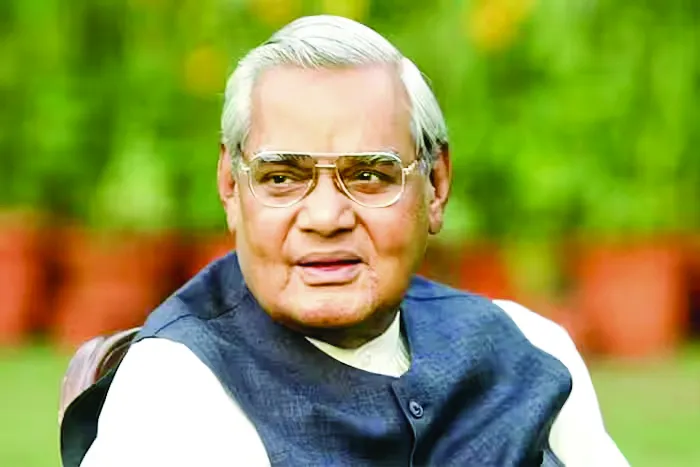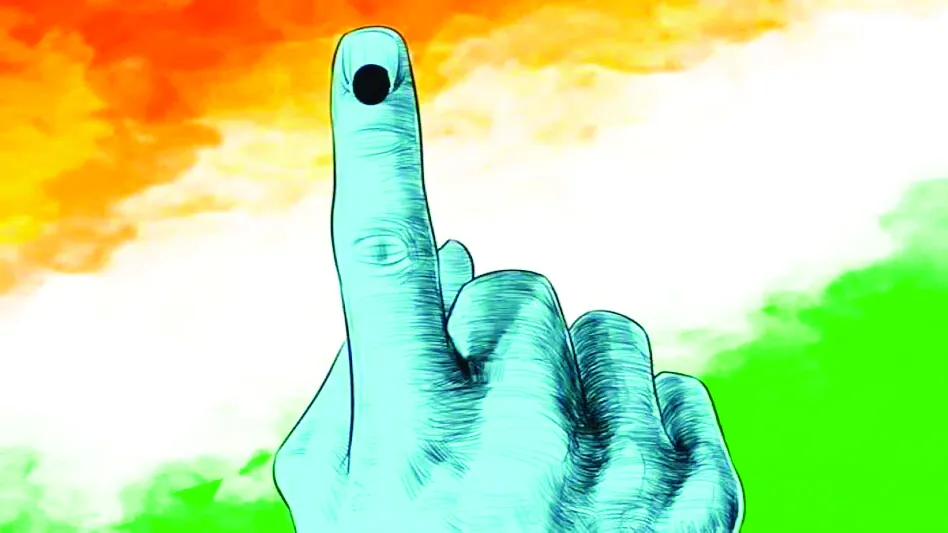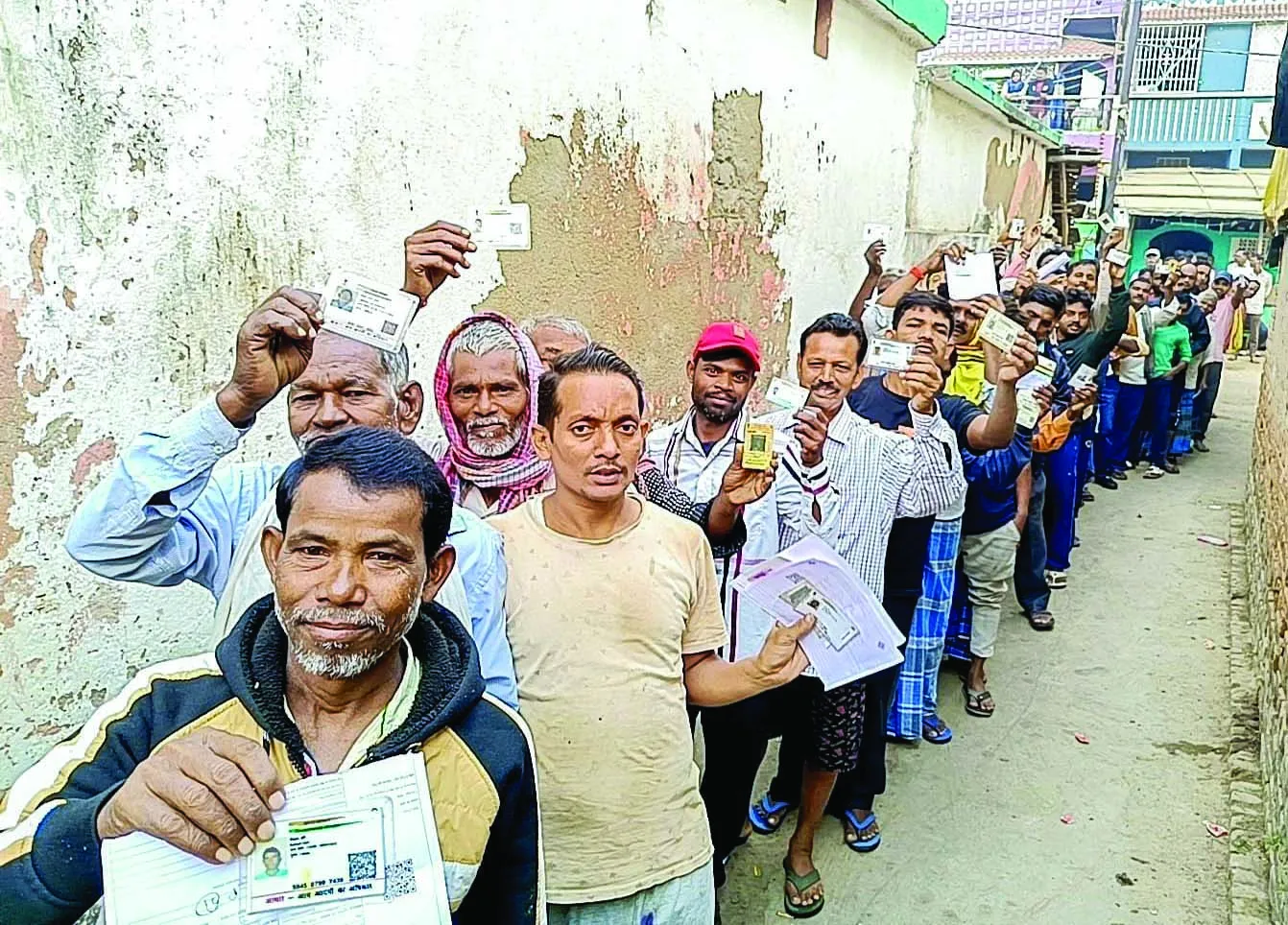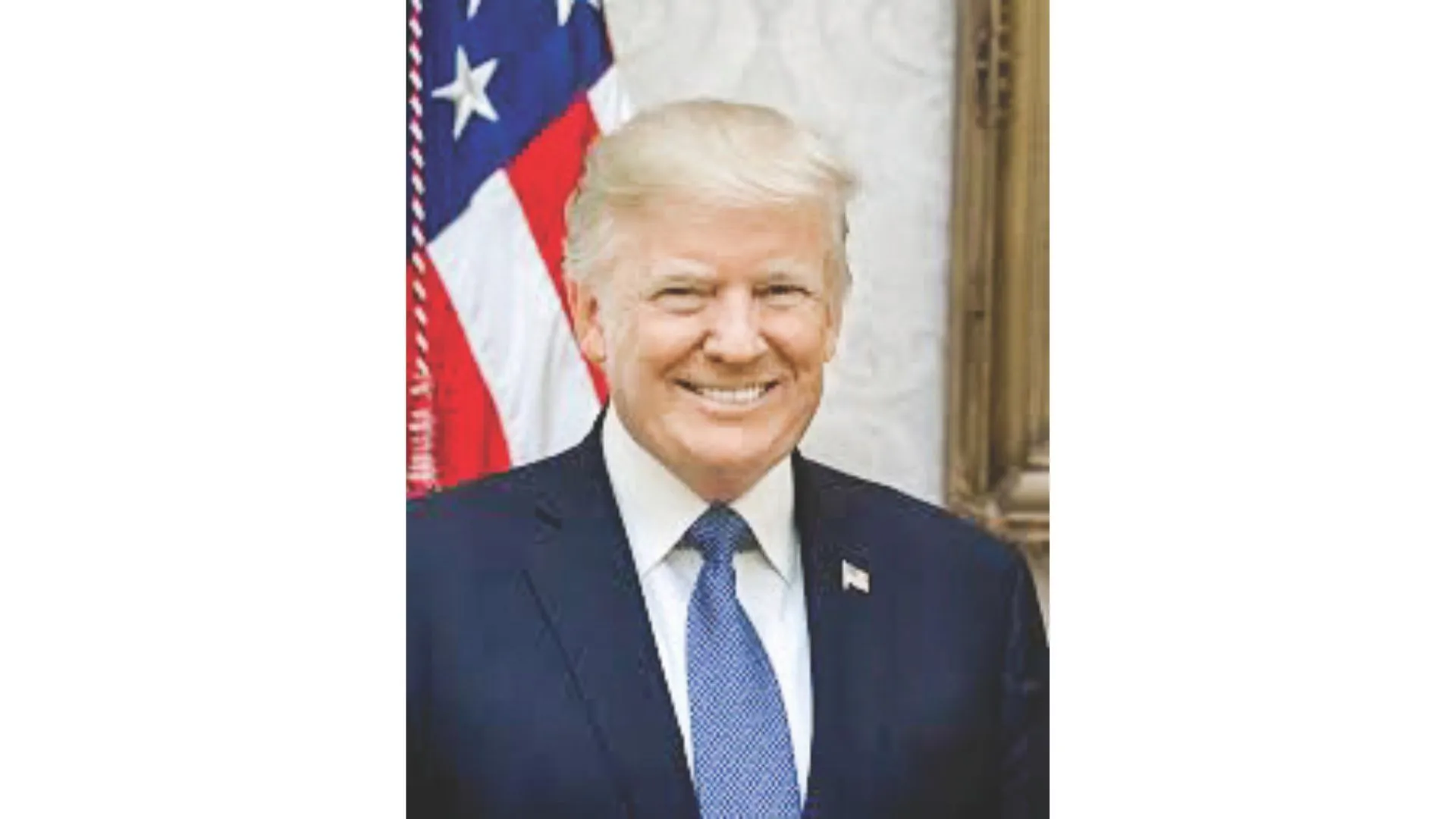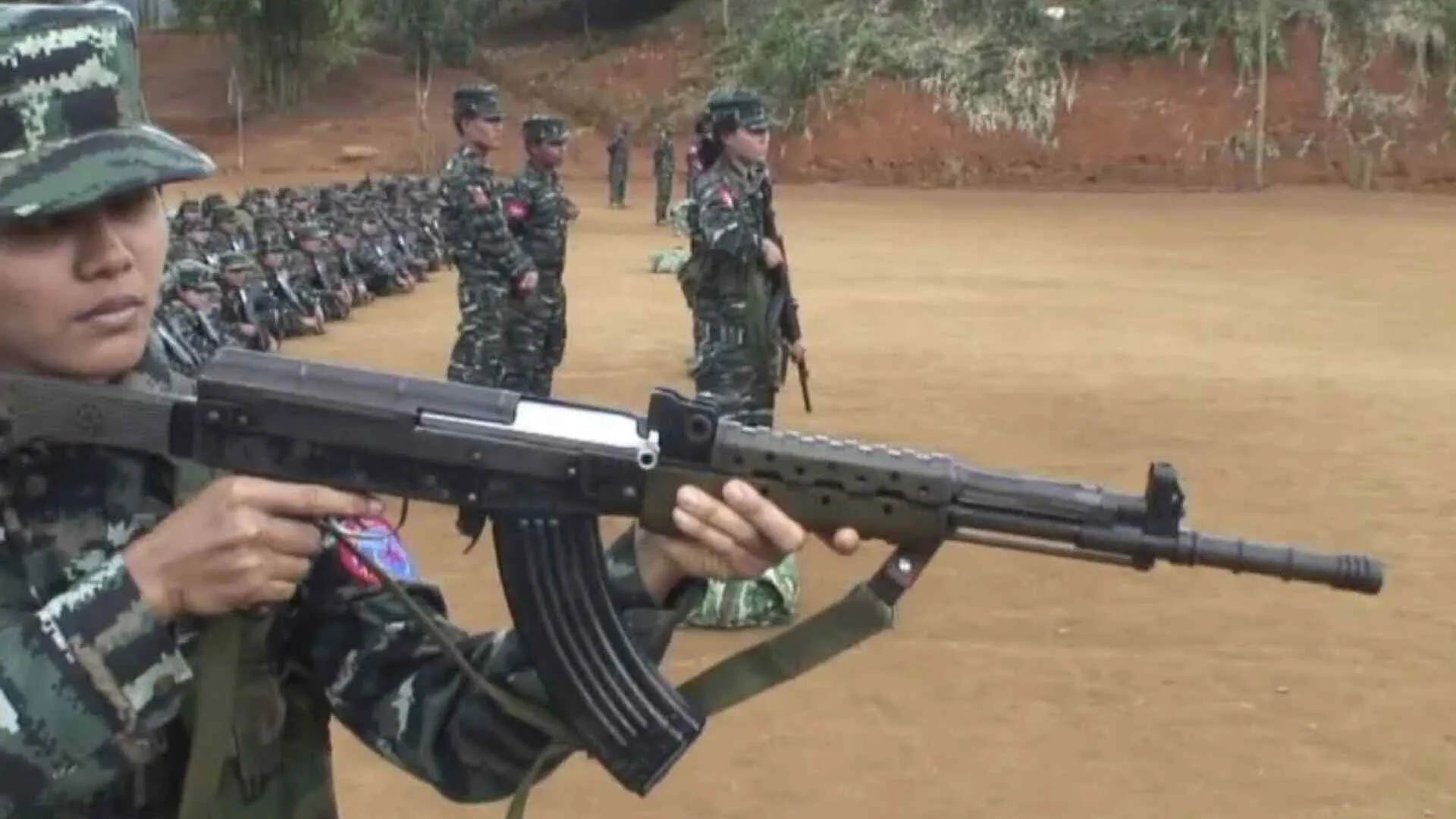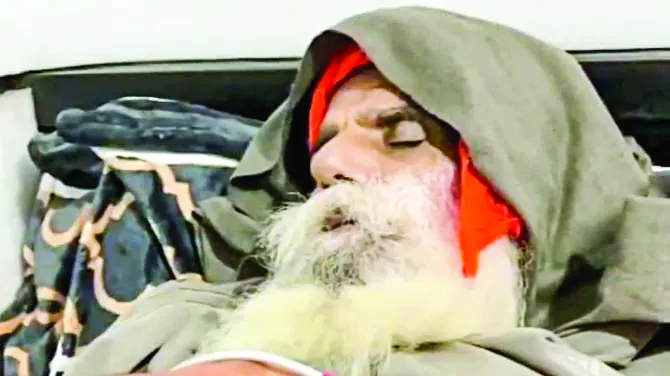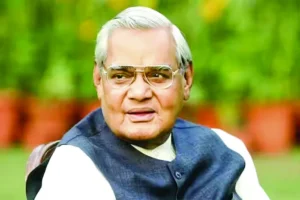As Bharat gears up to commemorate the 100th birth anniversary of former Prime Minister Atal Bihari Vajpayee on December 25, 2024, we reflect upon the life and legacy of one of the most respected statesmen in Indian history. A leader of unparalleled vision, Vajpayee’s contributions spanned decades, encompassing his early days in the Jan Sangh, his pivotal role during the Emergency, his diplomatic finesse on the global stage, and his transformative tenure as Prime Minister. Known for his poetry, oratory skills, and political sagacity, Vajpayee left an indelible mark on Bharat’s political and developmental journey.
Born on December 25, 1924, in Gwalior, Madhya Pradesh, Atal Bihari Vajpayee hailed from a humble background. His father, Krishna Bihari Vajpayee, was a schoolteacher and a keen student of literature, a trait that Atal inherited. Vajpayee’s early exposure to nationalist ideas and the influence of stalwarts like Veer Savarkar and Dr. Syama Prasad Mukherjee led him to join the Rashtriya Swayamsevak Sangh (RSS) at a young age.
Even as a student, Vajpayee exhibited exceptional oratory and writing skills, participating in debates and contributing to various publications. His intellectual prowess earned him recognition within the RSS, which shaped his ideological foundation and commitment to nation-building. These formative years instilled in him a deep sense of duty and a lifelong commitment to serving Bharat.
His entry into active politics began with the formation of the Bharatiya Jan Sangh (BJS) in 1951, under the mentorship of Dr. Mukherjee. As a founding member, Vajpayee’s eloquence and leadership qualities quickly earned him recognition. His speeches in Parliament, replete with wit and wisdom, showcased his ability to bridge ideological divides while steadfastly advocating for a strong and self-reliant Bharat. Dr. Mukherjee’s untimely death in 1953 left a void, but Vajpayee’s determination ensured that the Jan Sangh continued to grow, laying the groundwork for what would later become the Bharatiya Janata Party (BJP).
One of the defining moments of Vajpayee’s political career was his opposition to the Emergency imposed by Indira Gandhi in 1975. During this period, democratic freedoms were curtailed, and opposition leaders were jailed. Vajpayee, despite facing incarceration, emerged as a voice of resilience and a symbol of democratic ideals. His speeches during and after the Emergency emphasized the sanctity of the Constitution and the need to safeguard democratic institutions.
Interestingly, despite their ideological differences, Vajpayee shared a nuanced relationship with Indira Gandhi. A testament to his diplomatic prowess and recognition of his capabilities was his appointment by Mrs. Gandhi to represent India at the United Nations in 1977. His eloquent speech in Hindi at the UN, a first for any Indian leader, marked a moment of national pride and showcased his ability to put Bharat on the global stage. This episode highlighted his statesmanship and his commitment to Bharat’s cultural identity.
Following the dissolution of the Janata Party government, Vajpayee played a central role in the creation of the Bharatiya Janata Party (BJP) in 1980. Alongside his trusted colleague L.K. Advani, Vajpayee envisioned the BJP as a party rooted in the cultural ethos of Bharat while being forward-looking and inclusive. His leadership established the BJP as a significant political force, culminating in its rise to power in the late 1990s.
Vajpayee’s charisma and moderation complemented Advani’s organizational skills, creating a dynamic leadership duo. Under his guidance, the BJP grew from a marginal political entity to a national party that resonated with millions of Indians. Vajpayee’s emphasis on “Sarva Dharma Sambhava” (equal respect for all religions) and his ability to appeal to diverse sections of society were instrumental in shaping the BJP’s identity.
Vajpayee’s tenure as Prime Minister (1996, 1998-2004) was marked by transformative initiatives, bold decisions, and a commitment to inclusive development. His governance blended economic reforms with social welfare, laying the foundation for Bharat’s modern infrastructure and technological advancements.
Operation Shakti: Bharat’s Nuclear Vision
One of Vajpayee’s most defining moments was the successful execution of Operation Shakti in 1998, which made Bharat a declared nuclear weapons state. The nuclear tests in Pokhran were conducted under utmost secrecy and were a demonstration of Bharat’s scientific prowess and strategic autonomy.
Addressing the nation after the tests, Vajpayee remarked, “We have a weaponized nuclear program, but it is not for aggression. It is for self-defense and ensuring peace.” The tests earned Bharat global recognition but also invited sanctions. Vajpayee’s diplomatic acumen ensured that Bharat emerged from the crisis with strengthened international ties, particularly with the United States, through the subsequent India-U.S. nuclear agreement.
Vajpayee’s government spearheaded landmark initiatives such as the Golden Quadrilateral highway project, which revolutionized Bharat’s connectivity and logistics. His economic policies, including the promotion of privatization, foreign direct investment, and IT development, positioned Bharat as a global economic player. He championed reforms that prioritized fiscal responsibility while addressing the needs of marginalized communities.
Vajpayee’s statesmanship extended to his efforts to foster peace with neighboring Pakistan. Despite setbacks like the Kargil War in 1999, he took bold steps, including the Lahore Bus Diplomacy, to normalize relations. His famous words, “You can change friends but not neighbors,” reflected his pragmatic yet optimistic approach to diplomacy. He demonstrated remarkable restraint and maturity in handling sensitive issues, ensuring that Bharat’s interests were safeguarded while striving for regional stability.
Atal Bihari Vajpayee was not just a politician; he was a poet, thinker, and humanitarian who deeply understood the pulse of the people. His ability to connect with individuals across the political spectrum earned him admiration and respect, even from his ideological adversaries.
His empathy extended beyond politics. During natural calamities or national crises, Vajpayee’s words and actions provided solace and direction to the nation. For instance, during the devastating Gujarat earthquake in 2001, his leadership and heartfelt outreach reassured the affected communities, showcasing his compassion as a leader. Similarly, his efforts to provide relief during droughts and floods demonstrated his commitment to ensuring that no Indian felt abandoned in times of need.
Vajpayee’s humor was legendary and often disarmed critics. During a parliamentary session, when a fellow member accused him of “not doing enough,” Vajpayee replied with his characteristic wit, “Some people wake up only to criticize. But I’m glad they at least woke up.” Such moments exemplified his ability to navigate intense political debates with grace and good humor.
His colleagues often remarked on his unique ability to listen to divergent views patiently, ensuring that every voice was heard before arriving at a decision. Former President Pranab Mukherjee once said, “Vajpayee ji had an exceptional ability to build consensus. He could bring people together even in the most polarized environments.”
His poetry, rich in emotion and reflective of his philosophy, further highlighted his humane side. Lines like “Haar nahi manunga, raar nahi thanunga, kaal ke kapaal par likhta mitata hoon” not only inspired the nation but also revealed the resilience and optimism that defined his character. His poetry served as a bridge between his personal reflections and his public philosophy, offering insights into the man behind the leader.
Legacy and Inspiration
Atal Bihari Vajpayee’s legacy is one of resilience, vision, and unwavering dedication to Bharat. He transformed the BJP from a fledgling political entity into a ruling party and set a benchmark for governance that combined pragmatism with idealism. His life exemplified the values of humility, perseverance, and national pride.
As we celebrate his centenary, Vajpayee’s contributions remind us of the importance of principled leadership in navigating the challenges of a complex and diverse nation. His vision of a strong, self-reliant Bharat continues to inspire generations. His ability to balance economic growth with social welfare, and his emphasis on diplomacy without compromising Bharat’s sovereignty, remain guiding principles for future leaders.
Atal Bihari Vajpayee was more than a leader; he was a statesman whose life and work embodied the soul of Bharat. His journey from the streets of Gwalior to the highest echelons of power is a testament to his indomitable spirit and love for the nation. As we pay tribute to this extraordinary son of the soil, let us carry forward his vision of a united, prosperous, and self-reliant Bharat.
“Chhoti si umar mein bada sapna dekha tha, Sapna poora ho gaya hai, lekin yeh safar abhi adhoora hai.” — Atal Bihari Vajpayee.

